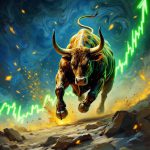
Understanding Housing Market Cycles
Sep 30, 2024
The concept of housing market cycles is crucial for investors seeking to navigate the complexities of real estate. These cycles typically consist of phases such as expansion, peak, contraction, and recovery. Understanding these phases can be essential for making informed investment decisions. However, as we will explore, the reliance on expert opinions during these cycles often leads to misguided strategies and missed opportunities.
The ancient Greek philosopher Socrates (470-399 BC) once stated, “I know that I am intelligent because I know that I know nothing.” This humility serves as a reminder that even so-called experts can be wrong, especially in rapidly changing markets like real estate.
Mass Psychology and Its Influence
Mass psychology plays a significant role in housing market cycles, affecting investors’ perceptions of trends and decisions. During a housing boom, enthusiasm can lead to irrational exuberance, where investors believe prices will only continue to rise. Conversely, during a downturn, fear can trigger panic selling, often at the worst possible time.
The famous economist John Maynard Keynes (1883-1946) discussed the concept of “animal spirits,” which reflects the instincts and emotions driving human behaviour in the market. He noted, “The market can remain irrational longer than you can remain solvent.” This observation highlights the dangers of following the crowd and illustrates how psychological factors can lead to poor investment decisions.
The Role of Cognitive Bias
Cognitive biases further complicate the decision-making process during housing market cycles. Confirmation bias, for instance, leads investors to seek information supporting their beliefs while ignoring contradictory evidence. This bias can result in overestimating market trends, particularly during periods of rapid price appreciation.
Daniel Kahneman, who won the Nobel Prize in Economics in 2002, emphasized the impact of cognitive biases on decision-making. He stated, “We are prone to overestimate our ability to predict the future.” This tendency is particularly evident in housing markets, where expert predictions often fail to account for unforeseen economic shifts or external factors.
Technical Analysis: A Double-Edged Sword
Investors frequently use technical analysis to predict future price movements based on historical data. However, its effectiveness can be limited during housing market cycles, when external factors can disrupt established patterns. For example, during the housing bubble of the mid-2000s, many analysts relied on technical indicators to forecast continued price growth, ignoring warning signs of an impending collapse.
Renowned investor Warren Buffett once stated, “Forecasts may tell you a great deal about the forecaster; they tell you nothing about the future.” This statement underscores the limitations of technical analysis, particularly in unpredictable markets like real estate. Despite the data-driven approach of technical analysis, it can often lead investors astray when the underlying market dynamics shift unexpectedly.
Real-World Examples of Experts Failing
One prominent example of expert failure during housing market cycles occurred in the lead-up to the 2008 financial crisis. Many economists and analysts predicted continued growth in housing prices, dismissing concerns about subprime mortgages and rising delinquency rates. Their optimism contributed to a sense of invincibility in the housing market, leading many investors to overlook critical signs of instability.
As the crisis unfolded, it became clear that the predictions made by these so-called experts failed to account for the complexities of market dynamics. The collapse of Lehman Brothers in September 2008 served as a stark reminder of the dangers of overconfidence in expert opinions.
The Herd Mentality Effect
The herd mentality can profoundly affect housing market cycles, leading investors to make decisions based on the actions of others rather than thorough analysis. This behavior often exacerbates market fluctuations, as people rush to buy during booms and sell during downturns, further driving prices in the wrong direction.
Psychologist William Golding (1911-1993) captured this phenomenon when he wrote, “The greatest ideas are the simplest.” In the case of housing markets, the idea that “everyone is buying” can lead to a rush of investment without proper evaluation of the underlying asset’s value. This emotional response can create bubbles that eventually burst, causing widespread financial distress.
Learning from History: The Dot-Com Bubble
Another illustrative example is the dot-com bubble of the late 1990s. Many experts projected endless growth for internet companies, leading to inflated stock prices and a surge of investment. When the bubble burst in 2000, billions of dollars were lost, and many investors were left in financial ruin.
This incident aligns with the words of economist Hyman Minsky (1919-1996), who stated, “Stability breeds instability.” In both the dot-com bubble and the housing market cycles, periods of stability and growth can lead to overconfidence and reckless behaviour, resulting in devastating consequences when reality sets in.
Expert Predictions and Their Limitations
During housing market cycles, experts often provide forecasts that can mislead investors. For example, in 2020, many analysts predicted a significant downturn in the housing market due to the COVID-19 pandemic. Instead, the market experienced a price surge driven by low mortgage rates and increased demand for housing.
As economist Paul Samuelson (1915-2009) famously remarked, “The stock market has called every depression except for the Great Depression.” This statement serves as a reminder that expert predictions can be inconsistent and unreliable, particularly in volatile markets like real estate.
Strategies for Investors
Given the unreliability of expert opinions, investors must adopt strategies that prioritize independent research and critical thinking. One approach is to focus on long-term trends rather than short-term fluctuations. Investors can make more informed decisions regarding housing market cycles by analyzing fundamental economic indicators, such as employment rates and wage growth.
Additionally, diversifying investment portfolios can mitigate risks associated with market cycles. Renowned investor Ray Dalio emphasizes the importance of diversification, stating, “He who is diversified is not diversified.” This paradox highlights the need for a balanced approach to investing, considering various asset classes to withstand market volatility.
The Importance of Self-Education
Investors should prioritize self-education to navigate housing market cycles effectively. By understanding the underlying factors that influence market dynamics, individuals can make more informed decisions. Resources such as books, online courses, and financial seminars can provide valuable knowledge that empowers investors to think critically about their strategies.
As Benjamin Franklin (1706-1790) wisely said, “An investment in knowledge pays the best interest.” This investment in self-education can help investors become less reliant on expert opinions and more attuned to the realities of the housing market.
Conclusion: Embracing Independent Thinking
The challenges of navigating housing market cycles reveal that experts are often useless in providing reliable guidance. Mass psychology, cognitive biases, and the herd mentality can distort perceptions and lead to poor investment decisions. Historical examples, such as the 2008 financial crisis and the dot-com bubble, further illustrate the pitfalls of overconfidence in expert predictions.
In a world where market conditions can change rapidly, investors must adopt a strategy of independent thinking and rigorous analysis. By focusing on long-term trends, diversifying portfolios, and committing to self-education, individuals can navigate the complexities of housing market cycles more effectively, ultimately leading to better investment outcomes.
As we move forward, it is essential to remember the words of the philosopher Aristotle (384-322 BC): “Knowing yourself is the beginning of all wisdom.” By understanding our biases and the limitations of expert opinions, we can cultivate a more informed approach to investing in housing market cycles.














